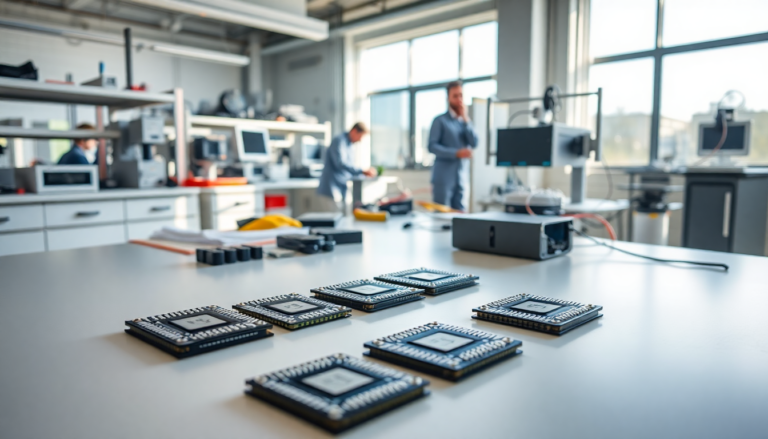Argomenti trattati
Baikal Electronics: An overview of its journey
Founded in 2012, Baikal Electronics has made significant strides in the CPU market, producing and selling a total of 85,000 processors by the end of 2024. Despite being a relatively new player in the industry, the company has primarily focused on low-end Baikal-T chips aimed at embedded applications. This focus has allowed Baikal to carve out a niche in a competitive landscape dominated by larger corporations.
The rise in processor production
Initially, Baikal delivered 17,000 processors to the Russian market by 2019. During this period, the company was operating from a single office with a modest team of 81 employees. However, by 2024, the production volume surged, increasing fivefold to 85,000 units. This growth was accompanied by an expansion of operations, with the company opening four offices and doubling its workforce to 200 employees. These statistics highlight not only Baikal’s resilience but also its ambition to meet the growing demand for domestic CPUs.
Product portfolio: Understanding Baikal processors
The 85,000 units produced by Baikal include three main families of processors: the Baikal-T1, Baikal-M, and Baikal-S. The Baikal-T1 is a dual-core 32-bit MIPS P5600 chip designed for embedded and telecommunication applications, operating at 1.20 GHz with a 5W power consumption. The Baikal-M, an eight-core Arm Cortex-A57 processor, targets client PCs with a 1.50 GHz clock speed and advanced graphics capabilities. Lastly, the Baikal-S, featuring 48 Arm Cortex-A75 cores, is designed for high-performance applications.
Challenges faced in the current landscape
Despite its achievements, Baikal Electronics is navigating a challenging environment due to sanctions imposed by Taiwan, the U.S., and Europe in response to geopolitical tensions. Following Russia’s military actions in Ukraine, these sanctions have significantly restricted the types of processors that can be imported into Russia. As a result, Baikal is limited to procuring outdated 32-bit CPUs with significantly reduced performance capabilities. This limitation poses a substantial barrier to advancing their product offerings and competing with global counterparts.
Attempts to circumvent restrictions
In response to these sanctions, Baikal Electronics has reportedly attempted to smuggle previously produced processors into Russia. However, these efforts have been met with challenges; instances of confiscation have been documented, including the seizure of Baikal-T1 chips while crossing into Belarus. The CEO, Andrey Evdokimov, revealed that there were significant losses, with 150,000 Baikal-M processors seized in Taiwan and the cancellation of an order for 15,000 Baikal-S units.
Future directions: New product developments
Despite the hurdles, Baikal Electronics remains committed to innovation. The company has initiated mass production of its own microcontroller, although specific details regarding its technical specifications have yet to be disclosed. Moreover, Baikal plans to launch its Baikal-L processor, aimed at mobile devices such as laptops and tablets. This strategic move is intended to re-enter the client PC market and assert its presence in the industry once again.
Focus on data center solutions
In addition to mobile devices, Baikal is reportedly working on the Baikal-S2 CPU, designed specifically for data centers. This product aims to address the growing demand for high-performance computing solutions in a market that is continually evolving. Both the Baikal-L and Baikal-S2 processors are expected to be manufactured in China by SMIC, reflecting a strategic shift in production to maintain operations amidst ongoing sanctions.
Conclusion: A resilient future for Baikal Electronics
Baikal Electronics exemplifies resilience in a rapidly changing tech landscape. While the sanctions have posed significant challenges, the company’s proactive approach to product development and market adaptation illustrates its commitment to growth and innovation. As they navigate these turbulent waters, Baikal’s future endeavors in the CPU market will be closely watched by industry stakeholders and tech enthusiasts alike.

